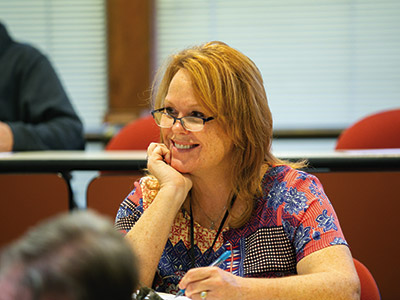Pittsburgh Seminary Plans for Hybrid Fall Instruction
Institutional planning during a time of significant uncertainty is challenging. Given the relative newness of the coronavirus, the future is impossible to predict. Pittsburgh Theological Seminary is a school that values in-person teaching and learning, but fall conditions may prevent us from gathering in all of our usual ways.
There are many things we do not yet know about the fall, including:
- Whether Allegheny County (and the other counties in which our students, faculty, and staff live) will be declared by the State of Pennsylvania to be Green, Yellow, and/or Red at various times.
- Exactly how Green, Yellow, and Red designations will shape campus life.
- Other public health restrictions that may or may not be in place (e.g., the need to mask, limit group sizes, curtail the density of people on campus).
- The availability, feasibility of implementing, and the efficacy of testing the campus population as a means of pursuing and ensuring safety.
It does seem likely, however, that:
- Social distancing and cloth face coverings will be required on campus, at least in spaces shared by more than one individual.
- The number of COVID-19 cases will peak again in some way in the fall and/or winter.
- Some already-publicly-announced higher education plans may need to change.
- Increased human contact will increase the transmission of the virus.
Despite complexity and uncertainty, we are able to move forward in planning for the fall semester by focusing on our two primary institutional priorities: 1) the health and wellbeing of our community and 2) the formation of students for ministry and service in God’s world. The latter, of course, has been central to the Seminary’s mission and work for generations, amidst a great variety of conditions. Faculty and staff remain deeply committed to undertaking this work with excellence; students choose PTS because of our longstanding dedication to this formation and education.
In order to strike a balance between flexibility and predictability while fulfilling our core commitment to students, we are planning for two fall scenarios.
Scenario 1 – A hybrid experience with in-person instruction when feasible – We value in-person instruction and will plan to offer it as much as possible and to replicate its aims and benefits when not feasible. Aware, however, that it is likely that conditions in the fall will necessitate some period(s) of remote instruction, all classes will be planned with online elements. This scenario allows us to transition to remote instruction more quickly when required and will reduce the density of people on campus by staggering in-person class meetings throughout the week. In-person sessions will be offered in classrooms and other campus venues that accommodate required physical distancing. In this scenario, some classes may be held fully online when instructional and pedagogical considerations make an online experience preferential to a socially distanced on-campus experience.
Scenario 2 – A fully online experience – Should conditions in August 2020 and throughout the fall prevent coursework from being able to be completed in-person, instruction will be offered fully remotely, as it was during the Spring 2020 semester.
(In the unanticipated event that public health guidelines present no restrictions to campus life and the safety of faculty, students, and staff can be assured, instruction can revert to an in-person format.)
In either scenario outlined above, PTS will offer all the coursework needed for students to continue to complete their degree and certificate programs. The already-published course schedule lists these classes and their meeting times, whether in-person or remote. Each class at PTS has been, and will be, executed according to documented course learning outcomes that support attainment of degrees and certificates. Remote instruction will be offered in a variety of synchronous and asynchronous formats that best meet course objectives and the desire for student formation and learning.
Given these two named scenarios, students are invited and encouraged to move (move back) to campus in August in order to participate as fully as possible in on-campus classroom and extracurricular (e.g., worship, opportunities for fellowship, student organizations) gatherings, as possible. Students who cannot take courses with in-person sessions at this time can choose to enroll in other, fully online classes. We will work individually with every student to make course enrollment changes and related updates to plans for remaining coursework. As we do each semester, we will work with students who become ill during the fall to navigate course completion options. We’ll share the planned format of each course in early July and announce the plans for the first weeks of classes in early August.
This summer, building on our experiences this spring, faculty will continue to hone their skills for hybrid and online instruction. This work will be supported by the pedagogical and technological skills of specialized PTS staff members and in ongoing conversations among faculty. In addition, campus facilities staff are assessing spaces and preparing campus for accommodating social distancing needs.
Christ has called, equipped, and sustained us as a community that is able to navigate unknown territory confident of God’s steadfast love and the accompaniment of one another. The dedication, perseverance, and grace of Seminary students, staff, and faculty made this spring’s transitions online both possible and smooth. Our shared focus on learning and the formation of students for ministry anchored our efforts amid changes this spring and will continue to do so, regardless of what the fall holds. We look forward to the ways we’ll gather, learn, lament, rejoice, struggle, and celebrate together as a community in the year ahead.

